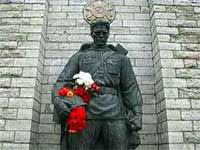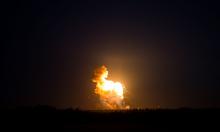Soviet Legacy Could Have Saved Small Europe
It is an open secret that four former Soviet republics – Latvia, Estonia, Lithuania and Ukraine – are one of those countries that suffered from the economic crisis most.

The inflation rate in those countries continues to grow because of huge debts, although the rate in many other countries begins to decrease. The crisis-struck states experience the phenomenon of stagflation because of the low GDP – this phenomenon is well-known to many Americans owing to the crisis of the 1970s.
Officials of the Estonian administration say that the nation had made right decisions in critical times and could handle the crisis well. However, Estonian observers and experts say that it is far from being true.
The financial, economic, social and political crisis, which Estonia currently goes through today, is the consequence of the so-called right shift among the nation’s ruling parties. Philosophy professor and journalist Igor Rozenfeld came to such a conclusion in his book entitled “Estonia Before and After the Bronze Night.”
The book has become extremely popular in Tallinn and other Estonian cities recently. The professor believes that Estonia has to go through severe economic difficulties because of the short-sighted nationalist policy, which made Russia introduce economic sanctions against Estonia.
The events, which took place in Estonia in April of 2007, were needed for right parties on the threshold of presidential (2006) and parliamentary (2007) elections. The parties intended to improve their ratings. They also wanted to remove other political forces from power in the country and make Russia introduce sanctions against the country.
The events of the so-called Bronze night, when the authorities ordered to remove the statue of the Bronze soldier from the center of Tallinn (a monument to Russian warriors, who died in Estonia during WWII) triggered the process. As a result, Estonia lost billion-dollar income from the transit of Russian goods.
Estonia ’s right parties wanted those sanctions in the endeavor to create the so-called sanitary cordon around Russia.
It is worthy of note that the number of those willing to obtain the Estonian passport has been decreasing steadily. About 23,000 people received Estonian citizenship in 1996. The number reduced to 1,410 individuals during only nine months of the current year. Feel the difference.
Moreover, some Estonians decide to decline Estonian citizenship and obtain the citizenship of another country, including Russia, Delfi.ee website said.
The decline of demand on Estonian citizenship was registered during the economic boom and after the events of the Bronze night. It just so happened that the bronze monument brought multi-million losses to Estonia’s economy and made many Estonians leave the country.
When a person accepts citizenship of this or that country, he or she commits an act of loyalty to this state and expects a guaranteed protection and respect of their rights. Such expectations of many Russians living in Estonia (both citizens and non-citizens) proved to be wrong.
Now Estonia has to pay for what it has done.
Ivan Tulyakov
Pravda.Ru
Read the original in Russian
Subscribe to Pravda.Ru Telegram channel, Facebook, RSS!




